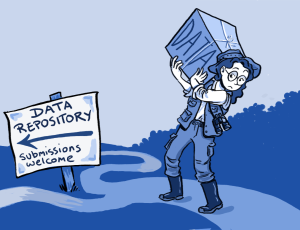We live in a world where both people and governments are becoming more and more paranoid about each other and their neighbors every day. Over the past few years, we’ve seen how the international political community has been rocked by the leaking of intelligence data regarding the NSA and the US government spying on both friends, its own civilians, and foes. While it’s an unspoken acknowledgement that all countries spy on each other regardless of relations, the US broke the cardinal rule of not getting caught. Now, as this sense of technological paranoia continues to grow, a new Australian law aimed at data retention and surveillance has begun today.
This newest law is proving to be controversial to say the least. It requires telecommunication companies to to hold on to metadata for 2 years, allowing the Australian government to access said data for security purposes. The companies would hold on to data including who called or texted, the amount of data sent/time spent on a call, the locations, the device used, the email IP data, and more. Holding on to this information would allow the government to access it easier and use it to pursue national security interests and concerns. With the rise of extremism and terrorism in all aspects of society, this sort of data can be used to learn about and prevent attacks of any sort before they begin.
As anyone can expect, this new law has been proving very controversial in Australia since it was first brought up. While the government claims that the law is necessary for protection from terrorism, both domestic and external, privacy activists and other citizens are claiming a breach of privacy and the possibility for racial and religious profiling. Along with claims of the law demanding too much information for crimes that are both major and minor, another concern is that a warrant is no longer needed to request any of this information.
If you’d like to read more, the link is here.

 The past few months have been loaded with bits and pieces of information regarding travels to Cuba, and the normalization of our relationship with the next door neighbor. As our partnership with the country continues to improve, it is imperative for us to become familiar with Cuban legislature and its laws. It has been over 50 years since the Cuban Embargo was put in place, and establishing appropriate channels to exchanging legal information and policies will be very helpful towards tourism between both countries.
The past few months have been loaded with bits and pieces of information regarding travels to Cuba, and the normalization of our relationship with the next door neighbor. As our partnership with the country continues to improve, it is imperative for us to become familiar with Cuban legislature and its laws. It has been over 50 years since the Cuban Embargo was put in place, and establishing appropriate channels to exchanging legal information and policies will be very helpful towards tourism between both countries. 
 Lawyers are often judged not only by their oratory and interaction skills in the courtroom, but also on their writing capabilities. Someone’s legal writing style differs due to a wide range of circumstances, such as the size of the firm they work for and the amount of resources offered, as well as the magnitude of the case and its specific requirements, which differ case by case. Bryan A. Garner has an extensive career as a lawyer, guest speaker and writer. He is well known for his
Lawyers are often judged not only by their oratory and interaction skills in the courtroom, but also on their writing capabilities. Someone’s legal writing style differs due to a wide range of circumstances, such as the size of the firm they work for and the amount of resources offered, as well as the magnitude of the case and its specific requirements, which differ case by case. Bryan A. Garner has an extensive career as a lawyer, guest speaker and writer. He is well known for his  A recent lawsuit was settled between the United States and a New York resident who claimed that the DEA (Drug Enforcement Administration) created a Facebook profile page featuring her in skimpy attire, other compromising situations, as well as photos of her and her relatives and underage son. Although the government does not admit to any fault, they did settle with the plaintiff for the amount of 134,000 dollars.
A recent lawsuit was settled between the United States and a New York resident who claimed that the DEA (Drug Enforcement Administration) created a Facebook profile page featuring her in skimpy attire, other compromising situations, as well as photos of her and her relatives and underage son. Although the government does not admit to any fault, they did settle with the plaintiff for the amount of 134,000 dollars.
